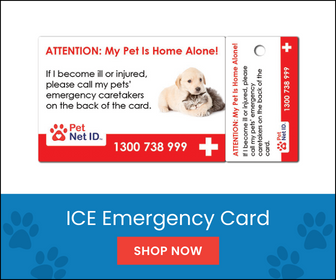
Tumors Excrete Hormone like Substances in Dogs – Related Illnesses
If your dog is suffering with tumors excrete hormone like substances, there are a number of potential illnesses which can bring on tumors excrete hormone like substances in dogs.
Tumors Excrete Hormone like Substances in dogs can cause visible changes in your pet’s health and also habits.
Knowing the tumors excrete hormone like substances in dogs is the first step in defending your dog’s wellness.
We have actually listed several of the typical illnesses in canines when they are experiencing tumors excrete hormone like substances. Please click the links of health problems listed below for more information.
| Dog Illnesses & Health Conditions |
|---|
| Tumors in Dogs |

Understanding Signs And Symptoms Including Tumors Excrete Hormone like Substances in Dogs
Keep an eye on your pet’s daily activity – Manage to keep a notebook of whenever your dog relieves himself, whenever his or her symptoms take place, when he/she consumes, and more.
This helps to find a pattern to the signs and symptoms. It can additionally be a very valuable tool for the veterinarian to diagnose your pet’s disease.
If your pet dog is mildly unwell (not eating the best for a day, restless, vomiting one or two times, a round of diarrhea) you can carefully observe your pet dog at home as well as phone your vet for advice.
Seek prompt veterinary attention with particular signs and symptoms – There are numerous serious signs and symptoms that need prompt medical treatment. Do not wait on these symptoms and call your vet right away:
- Known ingestion of a hazardous compound.
- Unconsciousness.
- Unrelenting vomiting and also looseness of the bowels.
- Respiratory troubles.
- Profuse bleeding.
- Seizures that do not cease within one minute.
- New or persisting symptoms in a dog with a medical problem (diabetes, Addison’s disease, and so on).
- Unable to pee or not producing urine.
- Big swellings around the face, eyes or throat.
- Fractured bones.
Get guidance from your veterinarian on less extreme symptoms – Some symptoms of ailment in dogs may be uncomfortable for pet dog and may suggest conditions that need to be dealt with. Call your veterinarian to get guidance on treating the following signs and symptoms:
- The occasional throwing up and diarrhea lasting longer than 1 day.
- Infrequent seizure that lasts less than one minute.
- Sleepiness lasting for a longer time than someday.
- High temperature.
- Swellings or bumps that all of a sudden show up or current ones that grow.
- Not eating for greater than one day.
- Hopping or acting agonizing.
- Trouble defecating.
- Excessive drinking.
- Swelling which surfaces progressively.
- Most other odd signs and symptom or behavior (shuddering or whimpering).
Pay attention to your canine’s demeanor – A dog parent can learn a good deal by noticing the pet’s conduct including things like just how she or he is actually feeling. You’ll want to ensure his health is progressively improving and reacting to medical treatment. For example, your pet should begin to wag his/her tail, pay attention to you and also get up to greet you.
If he or she cheers up and also starts demanding food, then that is great sign to suggest he/she is feeling better.
Conversely, if you notice your pet dog is coming to be much less interactive or simply lying still, she or he may be becoming worse and really need medical treatment.
Watch your canine’s breathing – It is good to watch the breathing pattern of your dog and it can reveal to you tell you a great deal about exactly how your canine feeling. If your beloved pet is in pain or struggling with some kind health issues, he breathe heavily or pant.
In a lot of circumstances, coughing as well as heavy breathing are indications of a chest infection. You must also keep an eye on your family pet’s gums if his breathing creates huge chest movements.
The gums in your pet’ mouth should be pink and healthy and balanced. If the gum tissues look tinged blue or pale, get in touch with the veterinarian. Your pet may not be getting adequate oxygen as well as could be in breathing distress.
You can additionally keep an hourly report of your canine’s breathing. Usually your pet dog take about 20 to 30 breaths per min. If your dog’s breathing rate surges progressively, his or her condition has actually worsened and you need to call the veterinarian.





